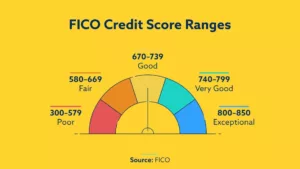 Between April 17 and April 19, several of Sony’s servers were attacked which lead to the exposure of personal data of more than 100 million customers who signed up for PlayStation Network, Qriocity, and Sony Online.
Between April 17 and April 19, several of Sony’s servers were attacked which lead to the exposure of personal data of more than 100 million customers who signed up for PlayStation Network, Qriocity, and Sony Online.
Howard Stringer, the CEO of Sony, apologized to customers on May 5, 2011 for the “inconvenience and concern” caused by an attack on Sony’s computing system last month.
But an apology may not be enough for customers; some of who have already reported unauthorized charges on their debit and credit cards.
One such customer is Clayton Bell of North Texas. Gary Reaves of WFAA-TV, Dallas reported on May 7, 2011 that Mr. Bell’s debit card had been swiped and his bank account was “wiped out.” Mr. Bell stated “I had no idea my check card had been compromised.”
Although the bank replaced Mr. Bell’s money, his worries are far from over. Hackers have potential access to do further damage because people tend to use similar passwords across different sites and one password could lead a hacker to a veritable treasure trove of information.
Sony removed the networks for downloading and playing games, movies, and music offline for the last three weeks but announced on May 12, 2011 they should be online in “at least a few more days.”
In terms of compensation for gamers, Sony stated in a press release that “All existing PlayStation Network customers will be provided with 30 days free membership in the PlayStation Plus premium service. Current members of PlayStation Plus will receive 30 days free service.
Music Unlimited powered by Qriocity subscribers (in countries where the service is available) will receive 30 days free service.”
Additionally, on May 5, 2011, Sony announced it would offer a complimentary enrollment in an identity theft protection program for account holders in the United States and similar arrangements are being worked on for its customers in other countries and territories.
Considering a large corporation such as Sony could not keep personal information safe from hackers, gamers must be proactive in protecting their own identity and personal financial information.
5 Actions Sony PlayStation gamers should take to help protect their identity:
1. Do not use your debit card online for purchases. If possible use a credit card instead of a debit card when online. Credit cards have a Zero Liability policy where account holders are not responsible for fraudulent charges in most instances. More importantly using a debit card online exposes your bank account to an instant deduction in available funds whereas when using a credit card the charges do not have an immediate impact on your bank account.
2. Do not reply to emails from your bank. Typically a bank may send you an alert of suspicious activity, overdraft, change in policy or low balance alert, but they will not require you to respond by email. Banks never ask you to verify personal information such as social security number in an email. If the hackers gained access to your banking information they may send a phishing email, pretending to be from your bank and request you verify personal information.
3. Vary your passwords. Do not use the same or similar passwords for online gaming as your banking online passwords.
4. Change your passwords regularly. Changing your passwords regularly may be a pain but it will help you protect your identity from hackers. Your passwords should be a combination of lower and uppercase letters along with numbers and symbols.
5. Monitor your bank account, credit card statements and credit reports. A few months of monitoring your credit report may not be enough. If possible, sign up for a credit monitoring service such as Equifax Complete where you have 24 hour access to Identity Theft Resolution specialists and receive alerts whenever there is a change in your credit score.
If you suspect fraud, immediately contact at least one credit bureau and place a fraud alert. Even though you can contact all three major credit bureaus to report fraud, you don’t have to because once you contact one, they will notify the other credit bureaus on your behalf.
















